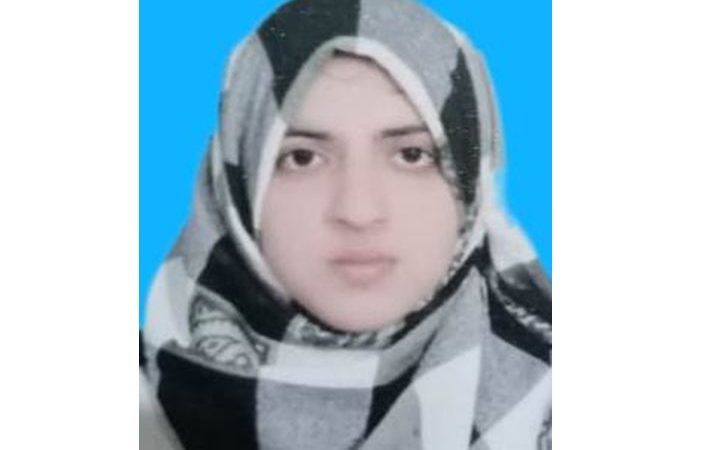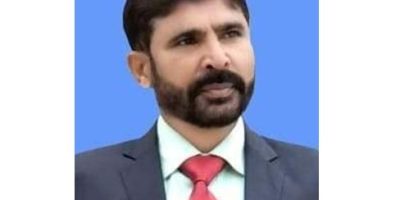Analyzing the Healthcare Landscape in Okara, Pakistan

Sobia Azhar
Okara, a city nestled in the heart of the Punjab province in Pakistan, is confronted with significant challenges in its healthcare sector. This article aims to provide a comprehensive analysis of the medical situation in Okara, shedding light on the existing challenges and exploring potential pathways for progress. By examining healthcare infrastructure, access to healthcare services, prevalent diseases, healthcare professionals, and initiatives for improvement, we can gain a deeper understanding of the medical landscape in Okara and identify strategies to enhance its healthcare system.
The healthcare infrastructure in Okara is encompassing hospitals, primary healthcare centers, and diagnostic facilities.The availability, capacity, and quality of hospitals and medical facilities in Okara are assessing their adequacy in meeting the healthcare needs of the population such as diagnostic and Testing Facilities, Access to Healthcare Services and Geographic Accessibility.
To meet the burden of communicable diseases in Okara, such as respiratory infections, vector-borne illnesses, and waterborne diseases, this section emphasizes preventive measures and treatment strategies. There is focus on non-communicable diseases prevalent in Okara, including cardiovascular diseases, diabetes, and cancer, this subsection explores the importance of prevention, early detection, and management. The unique healthcare challenge is facing by mothers and children in Okara, maternal mortality, infant mortality, immunization coverage, and access to reproductive healthcare services.There is an availability of healthcare professionals in Okara, encompassing doctors, specialists, nurses, and paramedics. It also discusses training and professional development opportunities.
The adequacy of healthcare professionals, particularly doctors and specialists is in Okara. It follows of workforce distribution, retention, and proposes strategies to attract and retain skilled professionals. The quality of nursing staff and paramedics, this subsection underscores their critical role in providing comprehensive healthcare services. It emphasizes the need for their training and capacity building.Highlighting the significance of continuous training and professional development for healthcare professionals in Okara, this section explores strategies to enhance their skills, knowledge, and expertise.
Various initiatives undertaken to improve the medical situation in Okara by NGOs. It explores efforts by the government, non-governmental organizations (NGOs), public-private partnerships, and the role of telemedicine and technology. The government’s initiatives to improve the medical situation in Okara, including policies, healthcare programs, and infrastructure development plans. There is potential of public-private partnerships in enhancing healthcare services, this section explores successful collaborations and the positive impact they can have on Okara’s medical landscape.
One of the significant challenges in healthcare delivery in Okara is the limited availability of resources. This includes a shortage of medical equipment, medicines, and supplies, as well as inadequate funding for healthcare facilities. Limited resources hinder the ability of healthcare providers to deliver optimal care and may result in substandard treatment and compromised patient outcomes.Another challenge is the lack of awareness among the local population about healthcare practices, preventive measures, and available healthcare services. This lack of awareness can lead to delayed or neglected healthcare-seeking behavior, as individuals may not recognize the importance of early intervention or preventive care. Health education and awareness programs are essential in addressing this challenge and promoting a better understanding of healthcare practices.Inadequate healthcare infrastructure poses a significant challenge in Okara. The healthcare facilities, especially in rural areas, lack proper infrastructure, including buildings, sanitation facilities, and essential utilities such as electricity and water supply. This limits the ability to provide quality healthcare services and may hinder the implementation of advanced medical technologies and procedures.
A shortage of healthcare professionals, including doctors, specialists, nurses, and paramedics, is a critical challenge in Okara. The existing healthcare workforce is often insufficient to cater to the growing healthcare needs of the population. The shortage of skilled professionals can result in increased workload, burnout, and compromised patient care. Addressing this challenge requires strategies to attract and retain healthcare professionals, improve training programs, and provide opportunities for professional development.
The efforts should be focused on improving the physical infrastructure of healthcare facilities. This entails the construction and renovation of hospitals, clinics, and primary healthcare centers to meet international standards. Additionally, investments should be made in essential utilities such as electricity, water supply, and sanitation facilities. Upgrading and expanding healthcare infrastructure will enhance the capacity to deliver quality healthcare services to the population.Improving access to healthcare services requires a multifaceted approach. Firstly, efforts should be made to ensure geographical accessibility by establishing healthcare facilities in underserved areas, particularly in rural and remote regions. Mobile healthcare units can be utilized to reach inaccessible areas. Secondly, financial barriers should be addressed by implementing health insurance schemes and expanding coverage to a wider population. This will alleviate the burden of out-of-pocket expenses and make healthcare services more affordable. Lastly, culturally sensitive approaches should be adopted to overcome social and gender-related barriers that hinder access to healthcare. This may involve community outreach programs and the involvement of community leaders in promoting healthcare-seeking behavior.Promoting health education and awareness is crucial to address the challenge of limited awareness in Okara. Comprehensive health education programs should be developed and implemented at various levels, including schools, community centers, and healthcare facilities. These programs should focus on preventive measures, early detection of diseases, healthy lifestyle choices, and the importance of regular healthcare check-ups. Information should be disseminated through various channels, including mass media, community engagement, and digital platforms.Addressing the challenges in Okara’s healthcare system requires collaborative approaches involving various stakeholders. Public-private partnerships can be established to leverage the expertise and resources of both sectors. Non-governmental organizations (NGOs) can play a significant role in implementing healthcare initiatives and supporting underserved communities. Collaboration with academic institutions can help in training and capacity building of healthcare professionals. Additionally, involving local communities and community-based organizations in healthcare planning and decision-making processes can ensure that interventions are tailored to the specific needs of the population.By strengthening healthcare infrastructure, enhancing access to healthcare services, implementing health education and awareness programs, and fostering collaborative approaches, Okara can make significant progress in improving its medical situation. These strategies, combined with sustainable funding and policy support, will contribute to a more robust and effective healthcare system that meets the needs of the local population.
The medical situation in Okara, Pakistan, presents several challenges that must be addressed in order to enhance healthcare delivery and outcomes. The limited resources, encompassing medical equipment, medicines, and funding, pose significant obstacles to providing optimal care to the population. Moreover, the lack of awareness among the local population regarding healthcare practices and available services contributes to delayed or neglected healthcare-seeking behavior.Inadequate healthcare infrastructure, encompassing buildings, sanitation facilities, and utilities, further obstructs the provision of quality healthcare services. The scarcity of healthcare professionals, including doctors, nurses, and paramedics, exacerbates the challenges faced in delivering healthcare effectively. These factors combined create a complex scenario for healthcare in Okara.To surmount these challenges and ameliorate the medical situation in Okara, several measures can be undertaken. It is crucial to strengthen the healthcare infrastructure by investing in hospitals, clinics, and primary healthcare centers, while also improving utilities and equipment. Enhancing access to healthcare services can be achieved by establishing healthcare facilities in underserved areas, implementing health insurance schemes, and addressing social and cultural barriers to healthcare access.Health education and awareness programs can play a vital role in promoting preventive care, early detection of diseases, and regular healthcare check-ups. Collaborative approaches involving partnerships between the public and private sectors, non-governmental organizations (NGOs), academic institutions, and community-based organizations can help collectively address these challenges and ensure the success of healthcare interventions. By addressing these challenges and implementing targeted strategies, Okara can strive towards improving the medical situation and the overall health and well-being of its population. Continued investment in healthcare infrastructure, increasing awareness, attracting and retaining healthcare professionals, and fostering collaboration will contribute to a more robust and effective healthcare system in Okara.
At the end, I Thank to Respected Sir Dr. Muhammad Akram Zaheer for his valuable source of guidance. He generously shared his time and knowledge, providing me with valuable feedback and constructive criticism that has significantly improved the quality of my work. His patience, encouragement, and willingness to engage in meaningful discussions have been truly inspiring.
Sobia Azhar
Medical lab technology
University of Okara
Related News

Wakhan Corridor: Vital for CPEC and BRI
By: Qamar Bashir An important development that went unnoticed by the Pakistan media radar wasRead More

Iran’s Pragmatic Approach towards Afghan Taliban
Dr. Muhammad Akram Zaheer Iran’s relationship with the Afghan Taliban is characterized by complexity andRead More


Comments are Closed